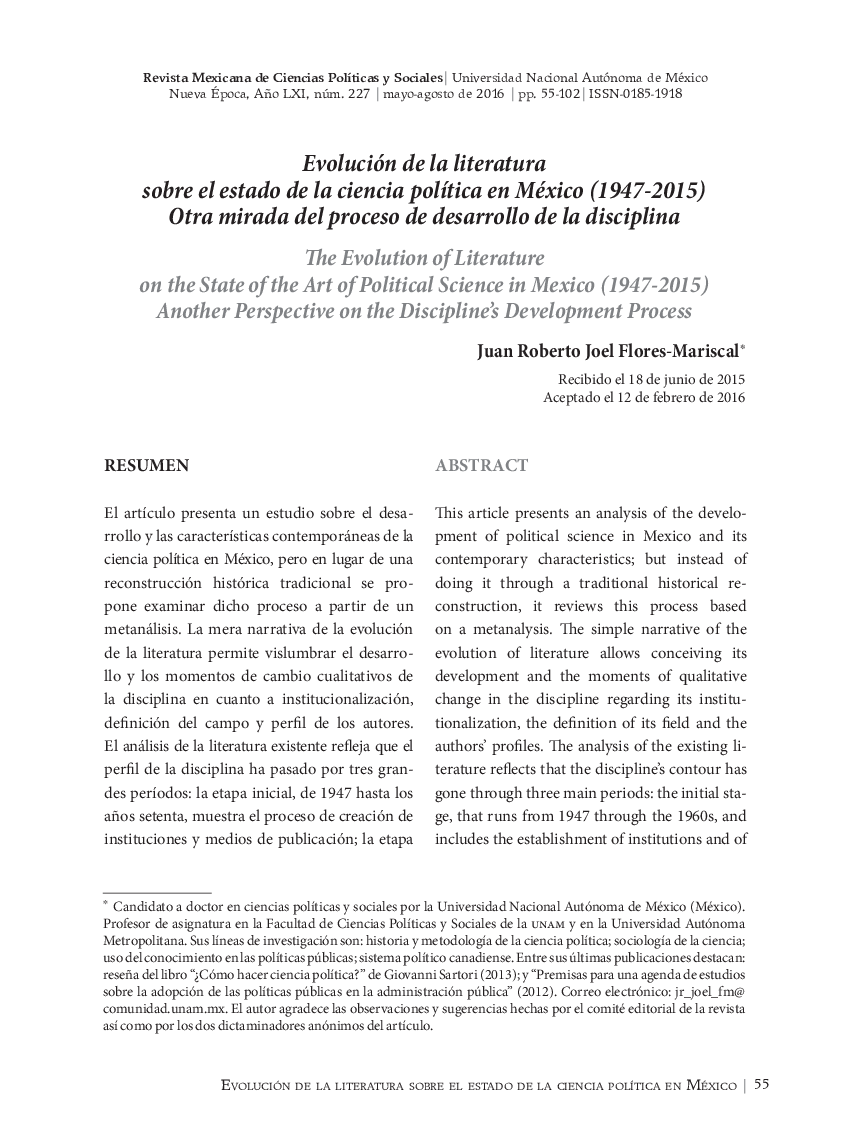| کد مقاله | کد نشریه | سال انتشار | مقاله انگلیسی | نسخه تمام متن |
|---|---|---|---|---|
| 999861 | 1481617 | 2016 | 47 صفحه PDF | دانلود رایگان |

ResumenEl artículo presenta un estudio sobre el desarrollo y las características contemporáneas de la ciencia política en México, pero en lugar de una reconstrucción histórica tradicional se propone examinar dicho proceso a partir de un metanálisis. La mera narrativa de la evolución de la literatura permite vislumbrar el desarrollo y los momentos de cambio cualitativos de la disciplina en cuanto a institucionalización, definición del campo y perfil de los autores. El análisis de la literatura existente refleja que el perfil de la disciplina ha pasado por tres grandes períodos: la etapa inicial, de 1947 hasta los años setenta, muestra el proceso de creación de instituciones y medios de publicación; la etapa de maduración, durante los años ochenta y noventa, denota el incremento de los títulos junto con la diversificación del perfil de los autores y los enfoques utilizados; finalmente, el momento contemporáneo, iniciado con el nuevo siglo, se caracteriza por un perfil de investigación compartido por los autores, una visión unificada de la disciplina y la inserción de la literatura en el marco de los debates a nivel internacional.
This article presents an analysis of the development of political science in Mexico and its contemporary characteristics; but instead of doing it through a traditional historical reconstruction, it reviews this process based on a metanalysis. The simple narrative of the evolution of literature allows conceiving its development and the moments of qualitative change in the discipline regarding its institu-tionalization, the definition of its field and the authors’ profiles. The analysis of the existing literature reflects that the disciplines contour has gone through three main periods: the initial stage, that runs from 1947 through the 1960s, and includes the establishment of institutions and of publication resources; the maturation stage during the 80s and 90s, which shows an increase in titles as well as a diversification of authors and perspectives; and finally, the contemporary moment, which began at the turn of the century, characterized by a research focus shared by the authors, a unified view of the discipline, and the inclusion of the local production in the framework of international debates.
Journal: Revista Mexicana de Ciencias Políticas y Sociales - Volume 61, Issue 227, May–August 2016, Pages 55–101